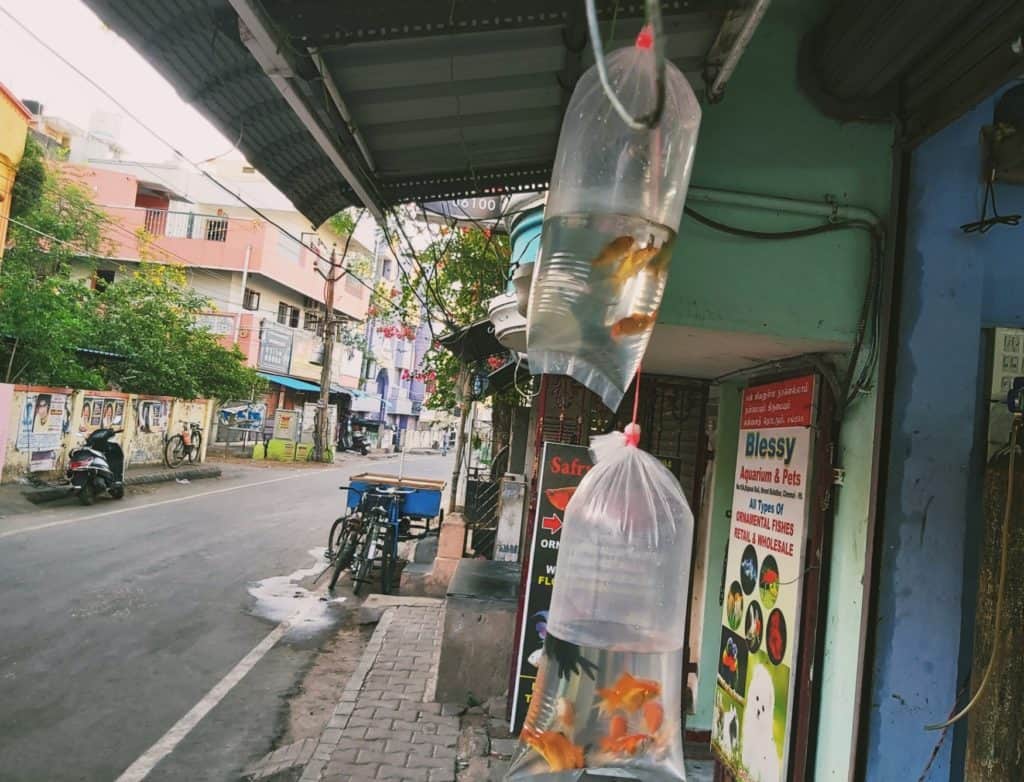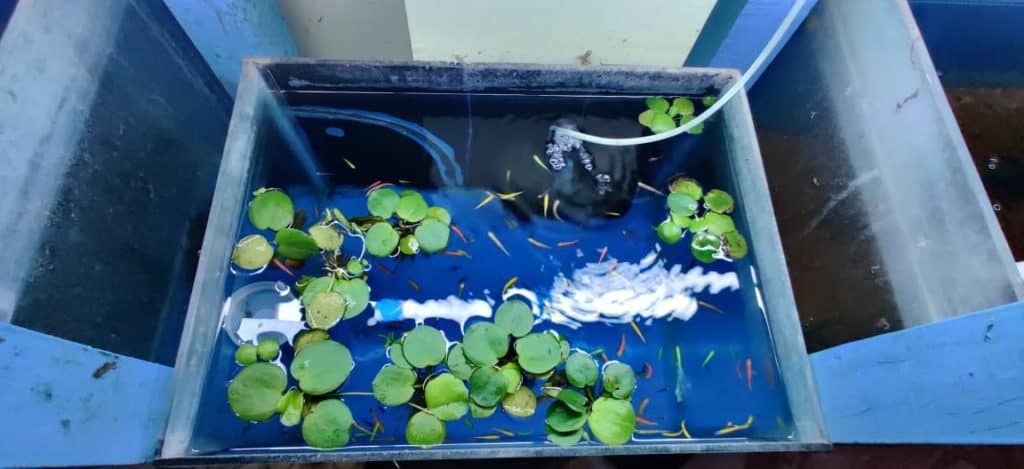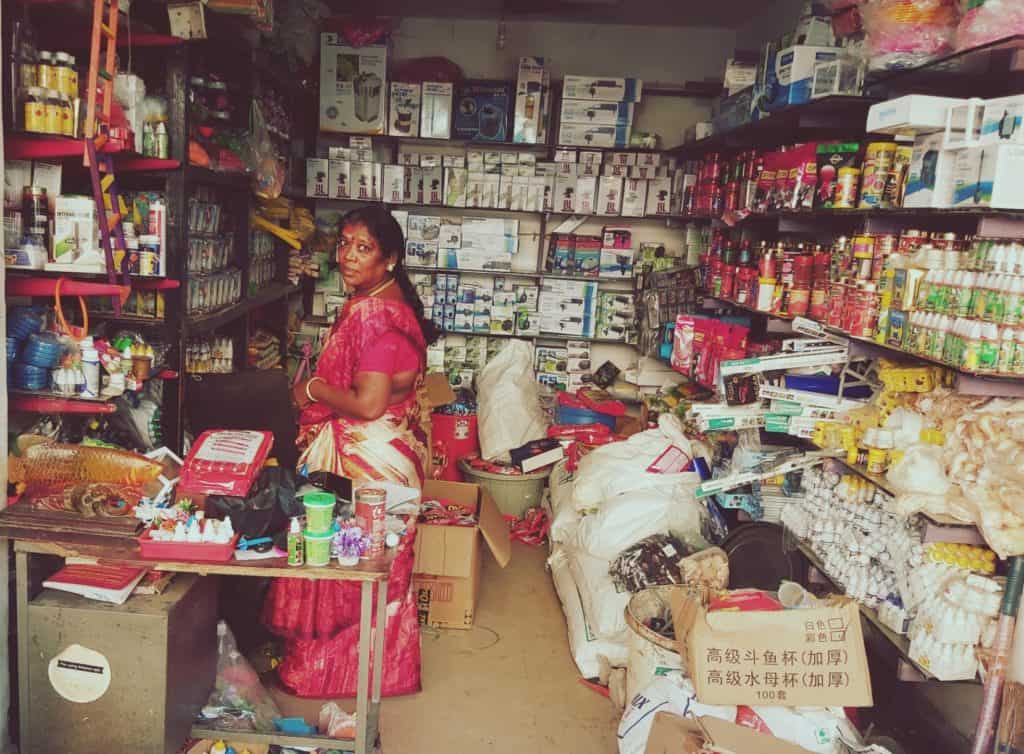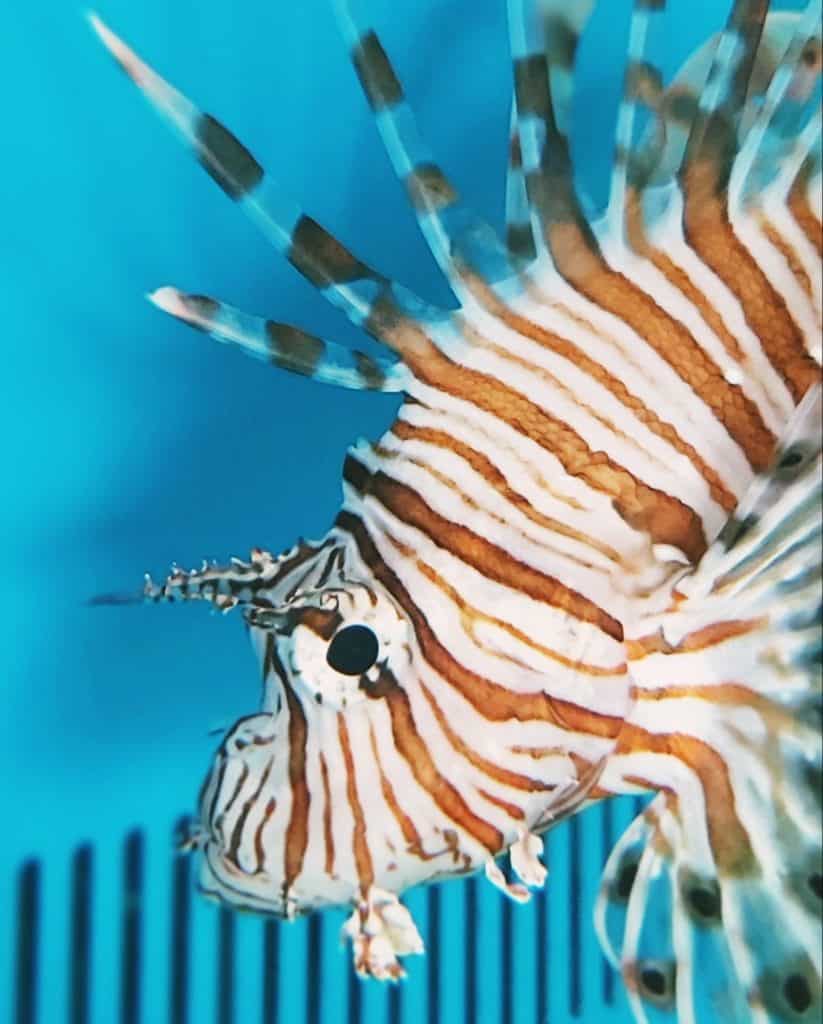The sparkling clean aquariums with some exquisite species of ornamental fish look spectacular. The line-up of shops selling beautiful accessories and equipment for aquariums add to the vibrancy of the place, yet there is something missing. A sense of uncertainty engulfs the air in Kolathur, the North Chennai locality that has emerged as the hub of an industry developed around ornamental fish breeding and related exports.
Outside an aquarium shop here, M Sanjay sits, hoping that he finds at least one customer before he pulls down the shutters of the shop. He sells aquarium stones and business hours are about to end. He has arranged and rearranged the aquarium stones and crystals in his shop a hundred times. But it has been several months since Sanjay saw some ‘good money’.

Velu Murugan, who sells fish fodder in Kolathur too, is rowing the same boat. The day’s profit will decide what will be on his plate for dinner. “I have been living on curd rice these days. I am waiting for the day I can relish a plate of biryani,” says Murugan. On the verge of shutting down his business, Murugan smiles in a bid to hide his blues.
Sanjay and Murugan are aquarists – those who deal with aquariums, and they are not the only people facing this desperate situation. Almost every shopkeeper in Kolathur’s School Road has a similar story to narrate.
Read more: Why the lockdown exemption for fishing has brought little cheer to Chennai’s fisherfolk
Present challenges
Once a buzzing commercial centre and paradise for hobbyists, it wears a deserted look, as it has been unable to withstand the onslaught of the pandemic-induced lockdown. Even after the lockdown has been lifted by the state government, uncertainty looms large. However, the vendors are hopeful that they will bounce back.
It is the stellar growth of the industry in the past that keeps their hopes alive. Ornamental fish breeding and associated industries here may be wading through troubled waters at present, but nobody can take away the fact that it grew by leaps and bounds and became a roaring business centre, thanks to the enterprise and perseverance of the men who started it almost four decades ago.
Starting with just a few, the area today boasts of over 1,000 fish breeding tanks, employing over 15,000 people directly and indirectly. Fish bred here are sold across India (predominantly South India) while some are exported to other countries as well. The market is also a business epicentre for landlocked countries such as China, which export aquatic equipment to Kolathur from where they are exported again to South-East Asian countries.

Before the lockdown, Kolathur market had a turnover of Rs 1 crore a day, 90% of which came from exports of aquatic equipment. “We have lost at least 50% of the business during the lockdown. There is a slow recovery in progress, but business is still down by 30% as other states in India are observing lockdown,” said R Raja Rajan, State President, Tamil Nadu Aquarium Fishes Breeders and Sellers’ Welfare Association.
However, some vendors like K Anandan have still managed to pay their employees despite the prevailing circumstances. Anandan’s is a rags-to-riches story. Once an auto driver, Anandan mustered courage, pooled money and started exporting Chinese equipment to Kolathur and selling it to various cities across India. Over the years, he earned enough money to see him through the hardships that the pandemic brought along. Kolathur has many such success stories, but the lockdown has left most of them in the lurch.
Lack of customers is not the only problem that COVID has brought upon the businessmen here. These vendors had to deal with an array of related issues. For example, difficulty in accessing fish fodder resulted in loss of fish stock. Fish farmers rely on dry, treated sludge from the sewage pumping stations for fodder. “As there were restrictions on vehicular movement, we couldn’t collect the sludge,” says Thangapandian, who hails from Madurai, but has now made Kolathur his home.
He adds that many like him were clueless about the e-registration procedure for commuting in the city. The result was that fish in their ponds couldn’t survive this lockdown.
“The challenge in this business is to fetch fish fodder (mostly worms). By training the breeders to produce fodder, the production can be increased to meet the existing demand now,” says P Moses Shankar, a geologist and owner of Angels Stones, Kolathur Fish Market.

The way forward
R Raja Rajan says that there are some actions that the government needs to take immediately to help the breeders. Ornamental fish breeders are eligible for a 50% subsidy on the cost of the total expenditure for aquaculture related businesses from the National Fisheries Development Corporation. However, traders at the Kolathur market feel the need for more local, targetted solutions that would help them recover from the current situation.

The chief demand of the aquaculture farmers is to include them in the MSME sector so that they may get a subsidy in electricity charges. “Until 2010, aquaculture farmers were paying Rs 3 per unit towards electricity. Now, as the government charges us at commercial rates, we have to pay double the amount,” says Raja Rajan.
Read more: How COVID landed the MSME sector in Chennai in deep waters
Raja Rajan also feels that an Ornamental Fish Park can put the Kolathur market on par with international ones like Singapore. “There is an Aquatic Rainbow Technology Park at Madhavaram with 40 shops for ornamental fish breeders. However, the fish breeders have been demanding a park that can house 200 shops, and at Kolathur itself, as Madhavaram is not a prime location. Not much could be done in this regard, because procuring land in a commercial locality such as Kolathur remains a challenge,” he says, adding that steps must be taken to develop Kolathur further.

Challenges apart, certain malpractices are tarnishing the image of Kolathur, hindering business opportunities at the international level.
A breeder, on conditions of anonymity, said that many breeders have been injecting fish with artificial colours to create eye-catching varieties! “A Blood Parrot Cichlid is naturally of light yellow shade, but if you look around Kolathur, there are breeders who have red, blue, pink and black ones too,” he said, lamenting that this greed is going to bring disrepute and spell doom for Kolathur one day.
He also feels that the Fisheries Department has to spread awareness among the breeders with regard to healthy practices of rearing fish. “In countries like Singapore, the government officials keep a vigil on the fish breeding sites to ensure quality. If such laws come into place in India, we can truly capture the export market,” says another fish breeder.
Among the exports from Kolathur Fish Market, aquatic tanks and filters occupy first place, whereas the natively bred fish species stand nowhere. Most of the fish varieties of the Kolathur market get sold in Indian cities, and veterans in the field feel that it is only quality issues that have hindered Kolathur’s chances of making its presence felt at the global level.
Responding to the same, a senior official from the fisheries department stated that an Aquatic Quarantine facility is being built, aimed at augmenting ornamental fish breeding and trade in Kolathur. “Once inaugurated, the facility will focus on quality control measures,” he said, adding that even the other demands of the association such as providing technical training to the breeders on fish fodder production will be implemented soon.
Also read:
- Newspaper distributors in Chennai fight COVID blues without any support
- How the pandemic locked waste workers out of livelihoods
- Plan for smart pushcarts on Marina leaves hundreds staring at uncertain future
Errata: An earlier caption to the top image in the story had mistakenly identified the fish variety as African frontosa. The error is regretted.

Excellent article. Very well researched and painstakingly reported from the ground. Thanks